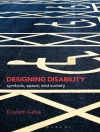Angst, Sorge, Empörung, Hass, Verachtung, aber auch Vertrauen, Hoffnung, Mitleid, Empathie oder Sympathie gelten als Movens sowohl von Protestbewegungen als auch als Faktor in Meinungsbildungsprozessen, sie scheinen den Zusammenhalt politischer Gebilde zu garantieren, sie sind verantwortlich für massenpsychologische Phänomene wie Umsturz und Revolution oder für das Kippen dieser Bewegungen in Terror und Schrecken. Zu aktuellen Debatten um die Legitimität politischer Emotionen trägt der vorliegende Band durch den Blick in die Kunst- und Literaturgeschichte bei: Von welchen Ikonographien zehren aktuelle Emotionspolitiken, welchen längst kodierten Dramaturgien folgen soziale Bewegungen, welche bekannten Narrative der Mobilisierung oder Eindämmung politischer Emotionen werden aufgegriffen?
Om författaren
Philipp Ekardt, Universität Konstanz;
Frank Fehrenbach, Cornelia Zumbusch, Universität Hamburg.












